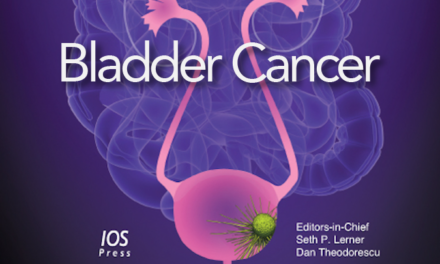
Molecular and Clinical Insights into the Role and Significance of Mutated DNA Repair Genes in Bladder Cancer
Abstract
DNA damage response and repair genes (DDR genes) are commonly mutated in bladder cancer. The biological impact of these mutations is an area of intense basic, translational, and clinical interest. As next generation sequencing increases its foothold in the treatment of localized and advanced bladder cancer, the role of DDR genes will continue to evolve. We review the inventory and biology of DDR genes in bladder cancer and describe known and candidate roles for loss of DDR genes to engender therapeutic susceptibilities to various anti-cancer agents.
Cisplatin-based chemotherapy is the current standard of care for muscle-invasive bladder cancer (MIBC) in the neoadjuvant, adjuvant, and metastatic settings, with emergence of immunotherapy in metastatic patients who are platinum ineligible or refractory. Recent insights from multiplatform genomic analysis has revealed a significant proportion of MIBCs that harbor mutations in DNA damage and response/repair genes (DDR genes). MIBC is notable for a relatively high frequency of DDR gene mutations and the potential for these mutations to impact selection of therapy. Other diseases such as metastatic castrate resistant prostate cancer [1] and several familial cancer predisposition syndromes feature DDR alterations, but DDR loss of function through genetic alterations is otherwise rare in primary cancers. Mutations in MIBC driver genes identified by The Cancer Genome Atlas (TCGA) which have bona fide DDR roles include ERCC2 and ATM. Additional DDR genes are recurrently mutated but with lesser frequency and may also impact tumor biology and therapeutic sensitivities, irrespective of their nomination as a common driver gene – the number of drivers will increase as more cancer genomes are sequenced. In this review we will compare and contrast DDR mutations in MIBC with DDR mutations in other cancers, discuss their potential impact on tumor biology, and highlight the emerging roles of DDR genes as biomarkers for therapy selection based on proposed therapeutic vulnerabilities.
Authors: Abbosh, Philip H. | Plimack, Elizabeth R.
Journal: Bladder Cancer, vol. 4, no. 1, pp. 9-18, 2018
Keywords: DNA damage response, DNA damage repair, cisplatin, immunotherapy, chemoresponse, bladder cancer, upper tract urothelial carcinoma




